Saturday morning through different lenses.
This weekend was different –in a good sense. On Saturday, I attended the conference: “Recovery and Community: Multiethnic Digital Humanities in 2022,” at the University of Illinois Chicago. The conference was a 3-day event, but due to a severe cold, I missed Thursday and Friday, and I only had Saturday left. Thus, I gathered my strength, woke up early, and went to an intense morning of learning. Luckily, I had the opportunity to hear two fantastic presentations on the potential of Digital Humanities in reshaping our understanding of the integration of minority (ethnic) communities by two professors: Dr. Roopika Risam and Dr. Rebeca Wingo. Given the different nature of their presentations (the first being a keynote, and the later a workshop), I will narrate my impressions in two parts. First, I will review Dr. Risam’s presentation: “Imagining a Digital Ethnic Future: Lessons from DEFCon.” And second, Dr. Wingo’s: “Hands-on History Harvest”.
Reviewing: “Imagining a Digital Ethnic Future: Lessons from DEFCon” by Dr. Roopika Risam.
*All images used in this come from Dr. Ropika Risam presentation (Link).
To give you a bit of context, DEFCon is an acronym for “Digital Ethnic Future Consortium” (you can visit their website here); which describes itself as a “consortium of digital ethnic studies practitioners led by Dr. Roopika Risam.” Their main goal is providing tools and funding to different professors and librarians dedicated to teaching and/or investigating the overlapping fields of Digital Humanities and Ethnic Studies.
As indicated in its name, the presentation revolves around the five lessons she learned as the leader of DEFCon. But from what I could grasp from her exposition, these lessons seem to be present throughout most of her career in the field of Digital Ethnic Studies. Yet, these became more evident thanks to her experience in DEFCon. In my understanding, these lessons I can be organized into three different topics:
Topic 1: Digital Humanities and their interactions with history can reveal us how deep colonialism, racism, and patriarchism are rooted in our way of performing studies in the social sciences and the humanities; while, at the same time, showing us a way to resist it. One of the examples that Prof. Risam gives us is the website Reanimate, which describes itself as “an intersectional feminist publishing collective that produces multimodal digital editions of archival writing by activist women in media.” This collective was created to spotlight this type of feminist scholarly that, more than having “no market,” just it was never showcased.
Topic 2: How to create and understand your and others’ work on the Digital Ethnic field project. When we talk about DH, we usually envision a futuristic, high-tech, big project. But Dr. Risam reminded us of three crucial points. First, there is the scarcity of resources for DH projects. Second, not everybody has access to the same technology; it is essential to remember that many ethnic communities do not necessarily have enough resources or access to participate in or see the projects that involve them. Finally, the third crucial point is that DH is a field in the making; to be more precise, there are no right or wrong methodologies and technologies, and making mistakes is not bad in itself. For the same reason, teaming up with other investigators is crucial and welcomed in this field.
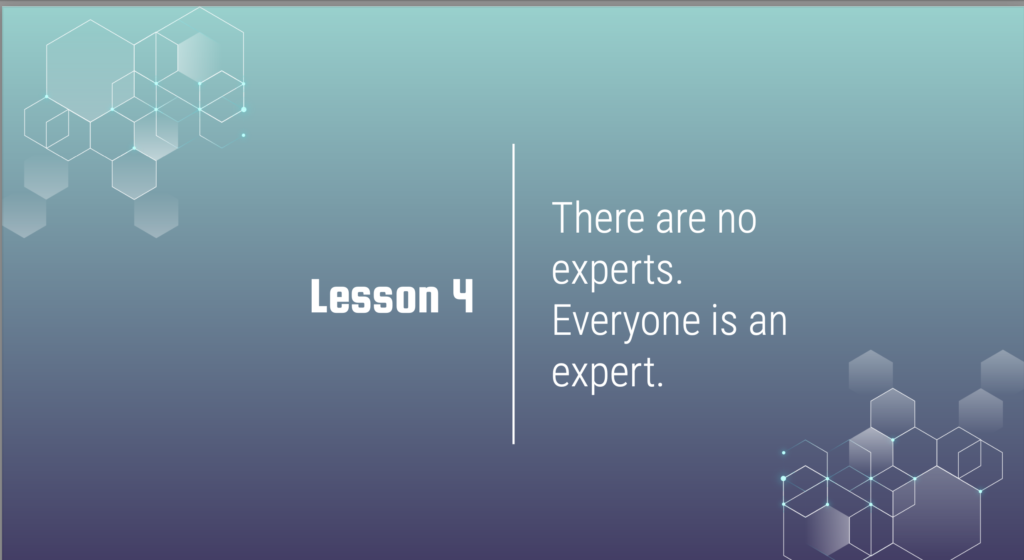
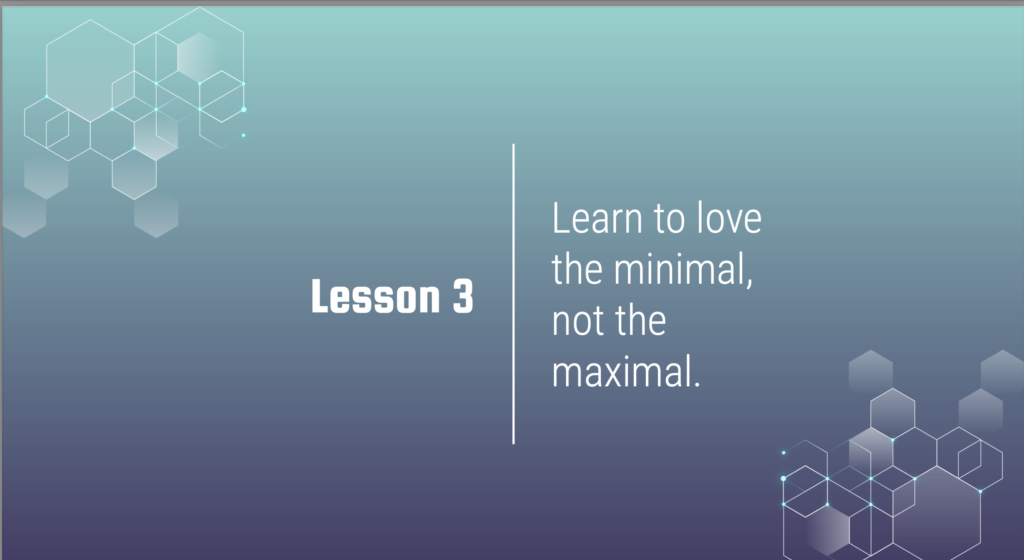
Topic 3: The issues that arise between projects in the DH and the academy’s reluctance to validate them. As in the previous topic, the scarcity of funding as a reality for the DH was once again readdressed. As Dr. Risam pointed out, this problem is rooted in the DH projects’ validation system; by validation, she meant creating a systematic scale to measure this kind of work. Thus, answering questions such as “How to peer review a DH project?” and “How to measure the importance of these projects in a scholarly curriculum?” becomes a complex and biased task.
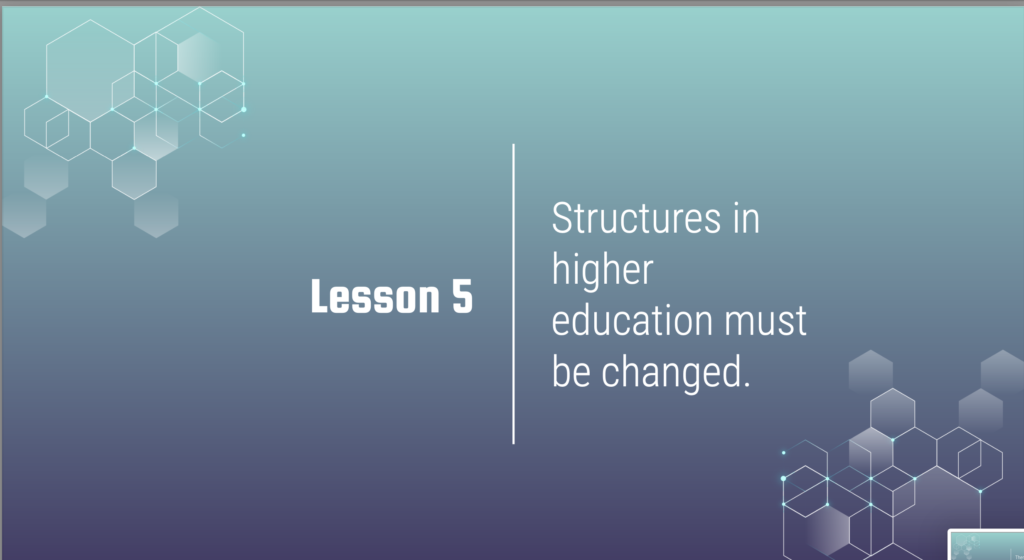
To conclude, my impression of this presentation is that it gave us a picture of the reality of DH ethnic field studies, with their ups and downs. But most importantly, it led us to future tasks in the field, thereby inviting us to involve ourselves with these kinds of projects.
Second part preview:
In what follows, I will be talking about the workshop of Dr. Rebeca Wingo, more specifically, about her experiences leading the “Hands-on History Harvest” project, and I will finish with a few general conclusions about these two presentations.
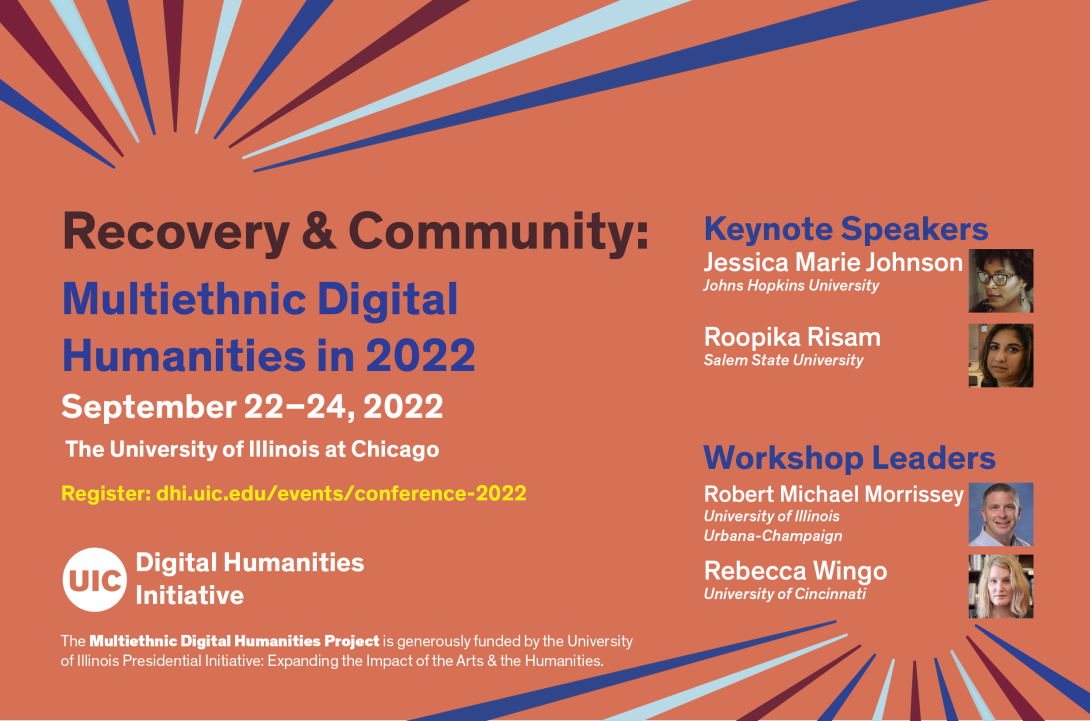
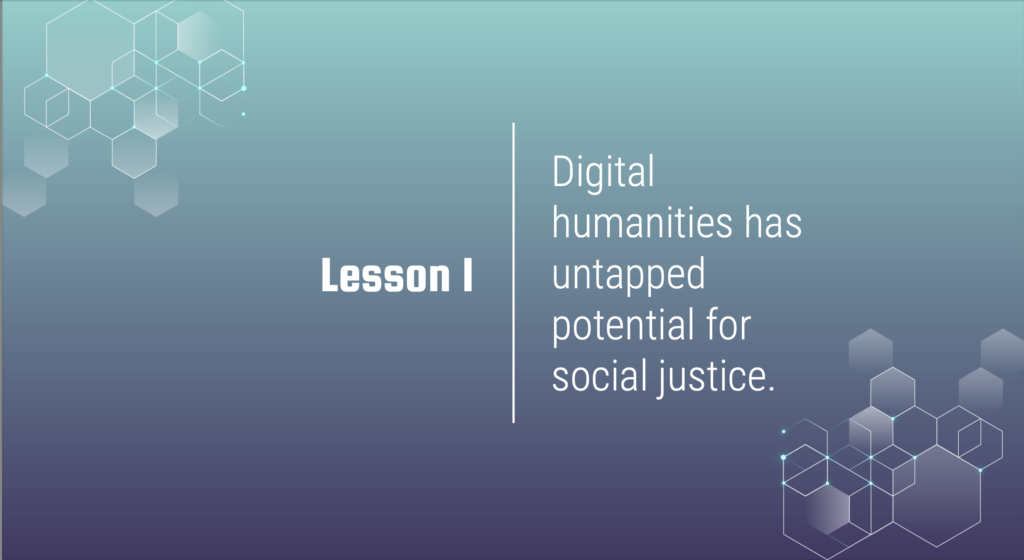
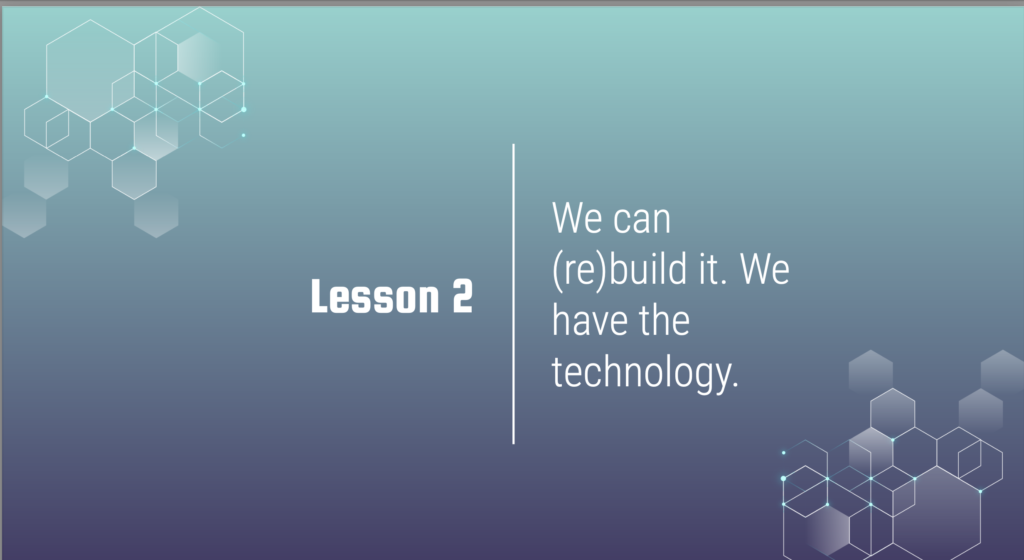
Leave a Reply